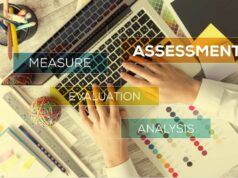Emotional Intelligence – often referred to simply as EI – has become a buzzword in the professional world, and for good reason.
It encompasses a set of skills that go beyond technical expertise and can significantly impact individual and organizational success.
What is Emotional Intelligence in Brief?
Emotional intelligence (EI) refers to the ability to recognize, understand, manage, and effectively use one’s own emotions and understand those of others.
It involves the skillful application of emotional awareness, empathy, and interpersonal skills in various situations.
Individuals with high emotional intelligence can navigate social complexities, build strong relationships, and make thoughtful decisions that consider both rational and emotional factors.
Emotional intelligence refers to a different way of being smart. EI is a key to high performance, particularly for outstanding leadership. It’s not your IQ, but rather it’s how you manage yourself and your relationships with others
– Daniel Goleman
Embracing emotional intelligence contributes to improved communication, conflict resolution, overall well-being in personal and professional contexts, and much more.

Here are ten key benefits of fostering emotional intelligence in the workplace.
1. Enhanced Leadership Skills
Leaders with high emotional intelligence excel in managing and inspiring their teams. They understand their own emotions and those of others, allowing them to navigate complex interpersonal dynamics effectively. This results in stronger leadership, improved decision-making, and the ability to inspire and motivate others.
2. Improved Team Collaboration
Individuals with high emotional intelligence are better at navigating and resolving conflicts within teams. They can foster a positive team culture, encourage open communication, and build strong relationships among team members. This leads to increased collaboration, productivity, and a more cohesive work environment.
_____
SEE ALSO THE VIDEO: How to Manage Emotions in Organizations
_____
3. Effective Communication
Emotionally intelligent individuals excel in both verbal and non-verbal communication. They can articulate their thoughts and feelings clearly and listen actively to others. This skill is invaluable in workplace settings, where effective communication is crucial for successful collaboration and project execution.
4. Adaptability and Resilience
The ability to adapt to change and bounce back from setbacks is a hallmark of emotional intelligence. In the fast-paced and ever-changing world of work, individuals with high emotional intelligence are better equipped to navigate uncertainty, handle stress, and maintain a positive outlook during challenging times.
5. Increased Empathy
Emotionally intelligent individuals possess a heightened sense of empathy, allowing them to understand and resonate with the emotions of their colleagues. This empathetic understanding fosters better relationships, a more supportive workplace culture, and a greater sense of camaraderie among team members.
6. Conflict Resolution
Conflicts are inevitable in any workplace, but emotional intelligence equips individuals with the skills to manage and resolve disputes effectively. By understanding different perspectives and addressing underlying emotions, emotionally intelligent professionals can find constructive solutions that benefit everyone involved.
_____
YOU MAY LIKE: Explainer: What is Emotional Intelligence and Why do You Need it?
_____
7. Stress Management
Emotionally intelligent individuals are adept at managing their stress levels. They recognize their stressors, employ effective coping mechanisms, and maintain a healthy work-life balance. This not only benefits their well-being but also positively influences the work environment, creating a culture that values employee health and resilience.
8. Increased Job Satisfaction
Employees with high emotional intelligence tend to experience higher job satisfaction. Their ability to manage relationships, navigate challenges, and communicate effectively contributes to a positive work experience. This, in turn, can lead to higher retention rates and a more engaged and motivated workforce.
9. Customer Relations
In customer-facing roles, emotional intelligence is a valuable asset. Professionals who can understand and respond to the emotions of customers effectively can build stronger relationships, handle complaints with empathy, and contribute to overall customer satisfaction and loyalty.
10. Career Advancement
Individuals with strong emotional intelligence often find themselves on an upward career trajectory. Their ability to work well with others, lead effectively, and navigate workplace challenges positions them as valuable assets to their organizations. As a result, they are frequently considered for promotions and leadership roles.
By teaching people to tune in to their emotions with intelligence and to expand their circle of caring, we can transform organizations from the inside out and make a positive difference in our world
– Daniel Goleman
The Importance of Emotional Intelligence for both Individuals and the Workplace
Emotional intelligence is not just a personal attribute; it’s a key factor in creating a thriving workplace. Organizations that prioritize the development of emotional intelligence among their employees reap the benefits of improved leadership, collaboration, and overall workplace satisfaction.
As the professional landscape continues to evolve, the importance of emotional intelligence in the workplace is only set to grow.
Original Sources about Emotional Intelligence
Goleman, D. (1995). Emotional Intelligence: Why It Can Matter More Than IQ. Bantam Books.
This book is a classic in the field and provides a comprehensive overview of emotional intelligence, its components, and its significance in various aspects of life.
Goleman, D. (1998). Working with Emotional Intelligence. Bantam Books.
This book focuses on the application of emotional intelligence in the workplace.
Goleman, D. (2017). The Impact of Emotional Intelligence in Leadership. Harvard Business Review, 87(2), 45-52.
You can find more at Daniel Goleman’s website.
_____
231116









[…] remain calm under pressure and think creatively to find solutions. Daniel Goleman highlights that great communication and collaboration are among the many benefits of high EI, which directly contribute to effective […]
[…] conclusion, the importance of being emotionally intelligent cannot be overstated. Emotionally intelligent individuals possess a powerful set of skills that […]
[…] Adaptability: High-EI individuals are 45% more adaptable to change in the workplace. Source […]